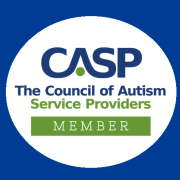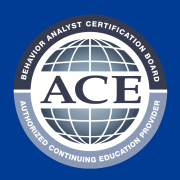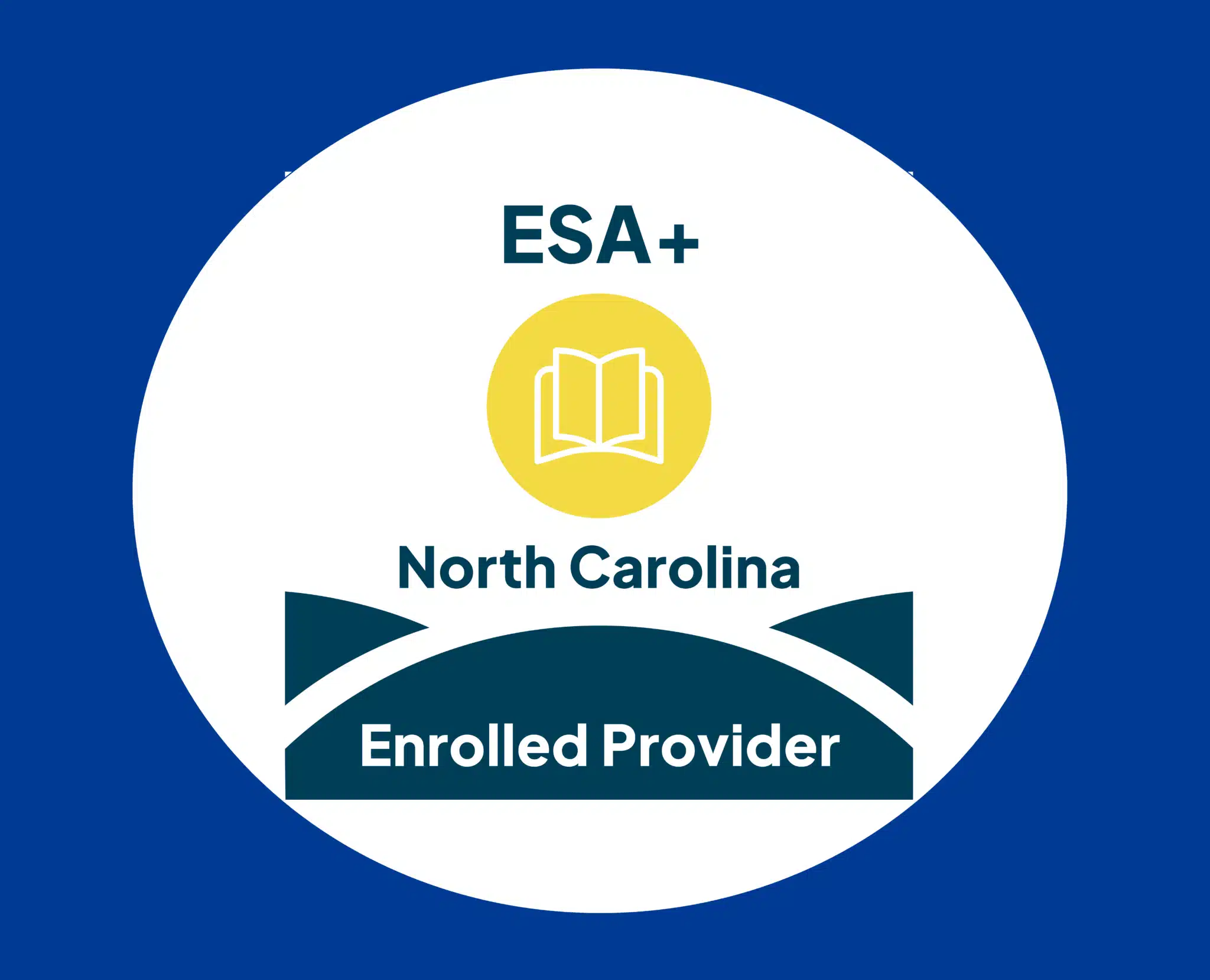Frequently Asked Questions
We’ve answered a number of questions we are most frequently asked – but chances are, you have others! If that’s the case, reach out! We’re here to help.
ABA Therapy Services
What kind of therapy is offered at A Bridge to Achievement?
We employ the scientific principles and procedures of neuro-affirming, assent-based Applied Behavior Analysis (ABA). All treatment plans are highly individualized with input from our on-staff clinicians, families and caregivers, and the learners themselves.
What programs and services do you offer?
At ABtA, we offer several comprehensive and focused ABA therapy avenues for autistic learners.
- Therapy Sessions – individual/small group sessions for ages 2 to 21+
- Building Bridges – preschool alternative for early learners
- BRIDGES – homeschool complement/ADL program for ages 8-21+
- Social Skills Groups – small group sessions for children and teenagers
- Balance Program (telehealth parent training) – creating joy and balance in the home
- Practical Functional Assessment & Skill-Based Treatment (PFA/SBT) Program – building tolerance with an emphasis on safety, dignity, and rapport
- Vocational Skills Program – building vocational skills for teenagers and young adults
Please note that therapy sessions, social Skills Groups, and the Building Bridges program are available at all ABtA centers. BRIDGES is available only at our University and Winston-Salem locations.
How many hours per week of therapy can you provide?
The number of intervention hours differs per week by therapeutic offering:
- Therapy Sessions – 15-40 hours/week
- Building Bridges – 30 hours/week
- BRIDGES – 30 hours/week (option to extend to 40 hours/week)
- Social Skills Groups – 10 hours/week
Do ABtA programs and services fulfill education requirements?
No, A Bridge to Achievement offers therapeutic programming only – we are not an academic institution. Our programs and services are designed to support autistic learners in developing age- and stage-appropriate life skills, enhancing independence, and building confidence.
For example, an academic program teaches learners how to count (educational), but ABA therapy teaches learners how to use money to make purchases (life skill).
Our Building Bridges program for early learners is a preschool and Kinder-readiness alternative. The BRIDGES program for preteens, teenagers, and young adults is designed to serve as a complement to homeschool curriculum and/or a comprehensive Activities of Daily Living (ADL) program.
Where is programming offered?
Therapy sessions and programming are center-based at our three A Bridge to Achievement centers:
University Center: 8530 Cliff Cameron Dr, Charlotte, NC 28269
Pineville Center: 10502 Park Rd #150, Charlotte, NC 28210
Winston-Salem Center: 1420 Plaza Dr, Winston-Salem, NC 27103
What insurance and scholarship funding do you accept?
Most insurance plans cover ABA therapy for individuals diagnosed with autism. Depending on the specifics of your plan and coverage, you may be required to pay a deductible, co-pay, or co-insurance. At A Bridge to Achievement (ABtA), we accept most MedCost, Blue Cross Blue Shield (BCBS), and North Carolina Medicaid plans. We also accept ESA+ funding. Without insurance coverage, the cost of ABA therapy can vary widely. Please contact your insurance company with questions or connect with our team – we’re here to support you.
Is ABA therapy worth it?
Applied Behavior Analysis (ABA) therapy is not solely for autistic learners, but it has become synonymous with treatment for autism because of its efficacy with individuals on the spectrum. What’s more, A Bridge to Achievement provides ABA therapy because of the significant benefits it is proven to yield for autistic learners of all ages, including:
- Communication Breakthroughs
- Social Skill Development
- Academic Progress
- Behavioral Self-Regulation
- Independence in Daily Living
- Tolerance Building
Do learners receive one-on-one or group therapy?
Both. All learners who receive ABA therapy services engage in interventions one-on-one and in small group settings. Learners are grouped according to age, developmental similarities, and shared interests.
Building Bridges for Early Learners
What is Building Bridges?
Building Bridges is an A Bridge to Achievement program that serves as a fun alternative to traditional weekday preschool and Kindergarten-readiness initiatives. Early learners ages 3 to 6 engage in 30 hours of one-on-one and small group interventions led by Registered Behavior Technicians.
How will Building Bridges help my child?
Building Bridges is an excellent early learning program that helps young children on the autism spectrum practice and progress in numerous skills, including:
- Attention and memory
- Behavior regulation
- Cognitive function
- Coping skills
- Daily living skills
- Gross and fine motor skills
- Language acquisition
- Problem-solving skills
- Sensory processing
- Social skills
- Tolerance building
What are the goals of a Building Bridges session?
The Building Bridges program aims to support our youngest learners as they work toward being the best versions of themselves, ultimately developing the skills they need to approach kindergarten with confidence and pride. ABA therapy treatment plans are highly-individualized with input from the learner’s family and a Board Certified Behavior Analyst (BCBA).
Data is collected daily by the learner’s RBT across all areas of the program. Some common areas for goals include:
- Manding (Requests): Asking for help, requesting materials, manding to peers
- Listener Responding: Following directions, responding to name
- Tolerance: Sitting in an assigned place, waiting for preferred items
- Social Skills: Taking turns, greetings, peer interactions
- Daily Living Skills: Hand washing, brushing teeth, toilet training
- DTT (Discrete Trial Training) Skills: Matching, sorting, labeling, imitation
Do learners always work with the same therapist or will they have multiple therapists?
Each learner has a Registered Behavior Technician (RBT) assigned to them throughout the day. Often a learner has at least two different therapists per day.
How many days a week is Building Bridges offered?
The Building Bridges program is available Monday through Friday.
How long is the Building Bridges program day?
The Building Bridges program is six hours per day to mimic a traditional school day, with an option to extend to participate in Social Skill Groups or general ABA therapy as needed.
What happens during a typical Building Bridges day?
Building Bridges is designed for ages 3 to 6 to engage in fun, friendship, and development. Learners work on play goals throughout their day using a variety of toys and settings. Programming follows visual schedules and includes the following as part of each day:
- DTT (Discrete Trial Training)
- NET (Natural Environment Training)
- Sensory Room
- Gym Time
- Lunch & Snack
- Group Circle Time (at least 2/day)
For more detailed information, please check out our Building Bridges magazine:
Where is Building Bridges available?
Building Bridges is available at all three of our learning centers: Pineville and University in Charlotte, and Winston-Salem.
BRIDGES Program for Preteens, Teenagers, and Young Adults
What is BRIDGES?
BRIDGES is an acronym that stands for Building Relationships, Independence, Determination, Group & Essential Skills. BRIDGES is a hands-on program specifically designed for preteens, teenagers, and young adults to gain meaningful life skills, increase autonomy, and build confidence.
How will BRIDGES help my child?
BRIDGES is a powerful homeschool complement and comprehensive Activities of Daily Living (ADL) program for preteens, teens, and young adults on the autism spectrum. In BRIDGES, learners engage in highly individualized learning and benefit from consistency and routine, social opportunities, and real-life skills application. Through their participation in the BRIDGES program, learners strive toward unlocking their highest potential by developing:
- Ability to identify and communicate emotional states
- Functional independence
- Independent leisure skills and meaningful hobbies
- Meaningful connections with others
- Personal agency and autonomy
- Self-advocacy
- Self-confidence
- Self-reliance
- Sense of belonging
- Sense of community
- Sense of empowerment
What are the goals of a BRIDGES session?
BRIDGES sessions are aimed at helping learners gain enhanced independence and greater self-confidence as they strive toward unlocking their highest potential. All treatment plans are highly individualized with input from our on-staff clinicians, your family, and the learner themselves.
How many days a week is BRIDGES offered?
The BRIDGES program is available Monday through Friday.
How long is the BRIDGES program day?
The BRIDGES program is six hours per day to mimic a traditional school day, with an option to extend to work on vocational skills or participate in Social Skills Groups.
What happens during a typical BRIDGES day?
BRIDGES is grounded in the development of Activities of Daily Living (ADL) for preteens, teens, and young adults and is designed to serve as a homeschool complement. Programming features a variety of hands-on activities that are often technology-rich, grounded in STEAM (science, technology, engineering, art, math) principles, and include leisure and recreational skills development. Activities may include cooking, household tasks, and projects and crafts, like gardening and painting.
Check out our quarterly BRIDGES magazine for more information.
Where is BRIDGES available?
The BRIDGES program is available only at our University and Winston-Salem centers.
General Questions
Where is A Bridge to Achievement located?
We have three learning centers across North Carolina – two in Charlotte and one in Winston-Salem.
University Center: 8530 Cliff Cameron Dr, Charlotte, NC 28269
Pineville Center: 10502 Park Rd #150, Charlotte, NC 28210
Winston-Salem Center: 1420 Plaza Dr, Winston-Salem, NC 27103
When is A Bridge to Achievement open?
All ABtA locations are open Monday through Friday from 8:00 am to 6:00 pm. All centers are closed on weekends.
Where do we park?
There is ample parking available in the surface lots at each of our locations. You shouldn’t have any issue parking.
Who does ABtA serve?
At A Bridge to Achievement, we serve autistic learners ages 2 through 21+ with hands-on, resource-rich, one-on-one and small group therapeutic programming.
Unlike other learning centers for people of differing abilities, we engage only the autism community. Our clinicians are experts in their field, our centers are fully equipped with the latest therapeutic tools, and our treatment plans are highly individualized.
Does ABtA perform autism diagnostic assessments?
Yes, we conduct autism diagnostic assessments at all three of our learning centers. Our Charlotte centers (Pineville and University) most often engage families from Cabarrus, Mecklenburg, Union, and Gaston counties. Our Winston-Salem location serves Davidson, Davie, Forsyth, and Guilford counties in the Piedmont Triad.
While it is never too late to test for autism or to be eligible for therapeutic services, studies definitively show that early intervention is most beneficial.
Does everybody get a level diagnosis?
Yes, for insurance purposes every learner is associated with a level of required support – this level diagnosis is not referring to a level of autism.
Do you provide services to learning on all parts of the spectrum?
Yes, we engage all autistic learners, regardless of where they fall on the spectrum. Our focus is on the skills to be developed through the application of an individualized treatment plan.
What credentials are ABtA therapists required to have?
The experienced and passionate therapy team at A Bridge to Achievement is highly credentialed. Every member of our leadership and management teams are Board Certified Behavior Analysts (BCBAs) who are licensed to practice in North Carolina. We have numerous Registered Behavior Technicians (RBTs) across our administrative teams as well.
Is a provider referral required?
No, you are welcome to request therapeutic services at A Bridge to Achievement directly. We do, however, provide and accept provider referral forms as needed.
Is there a waiting list?
Yes. ABA therapy and day programs for learners with autism are in high demand. Unlike other centers for people with differing abilities, A Bridge to Achievement is solely dedicated to the autism community.
How quickly can my child start receiving services?
Our wait lists vary depending on several factors:
Location.
We have a different waitlist for each of our three centers. The number of learners on each list varies by location, affecting how long it may take for a learner to start services.
Flexibility.
The more flexibility a family has regarding their learner’s schedule, the sooner they can be moved into an opening. If an 8am to 3pm spot becomes available, for example, a family with flexible daytime availability would be contacted about that spot; a family with availability only after 2pm would have to wait for a more conducive spot.
Staffing.
Just as things change with learner families in regard to participation and schedule, the same is true for our staff. We only hire highly-qualified behavior technicians, which can impact the time it takes to begin services.
Insurance.
We are at the mercy of insurance company timelines. Oftentimes, insurance companies require significant turnaround time for learner assessment, treatment plan approval, and authorization for services to begin. Typically, it takes three to four weeks to schedule services from the time that a family accepts a placement for their learner.
How do I know if ABtA is a good fit for my child?
Every child is different. Many young people engage in therapy sessions and programming at A Bridge to Achievement for consecutive years. We invite your family and child to visit an ABtA center for a tour, meet our team members, see programming in action, and connect with other parents.
Treatment plans are based on six months of consistent services. If ABtA is not a good fit for your child, you can discharge from programming at any time. However, a planned discharge is always advisable so remaining sessions can be maximized for the learner and they can experience a deliberate transition.
Therapy sessions, Social Skills Groups, and the Building Bridges program are available at all ABtA centers. BRIDGES is available only at our University and Winston-Salem locations.



